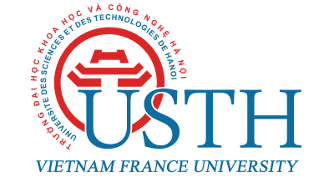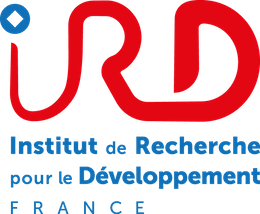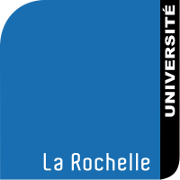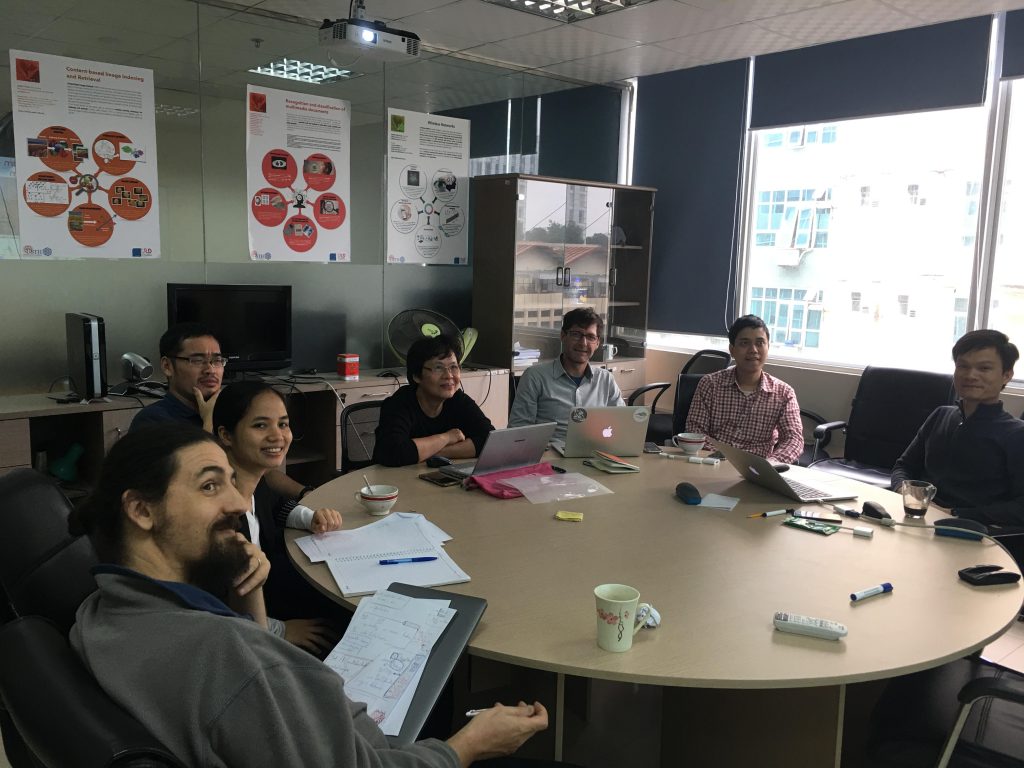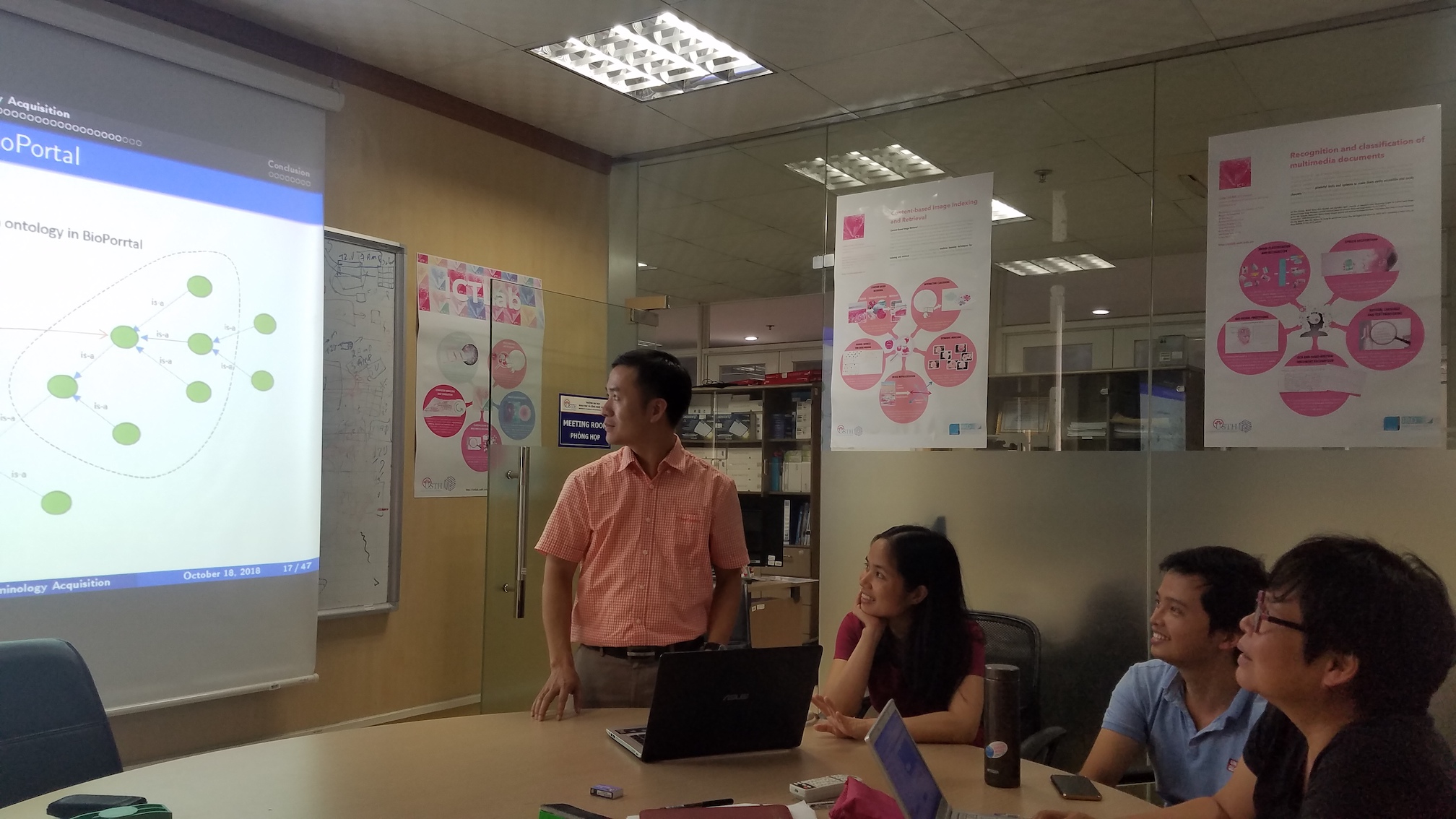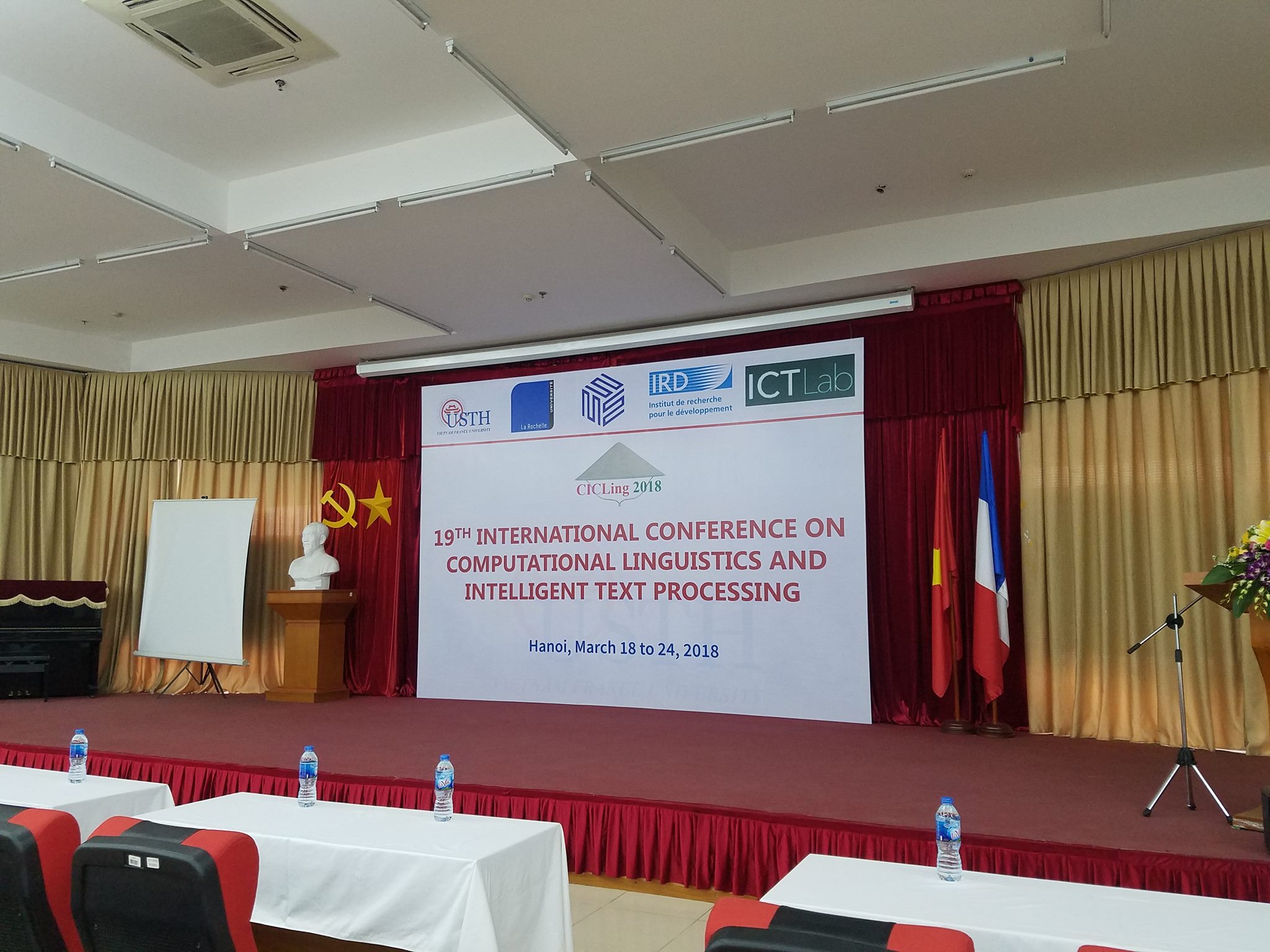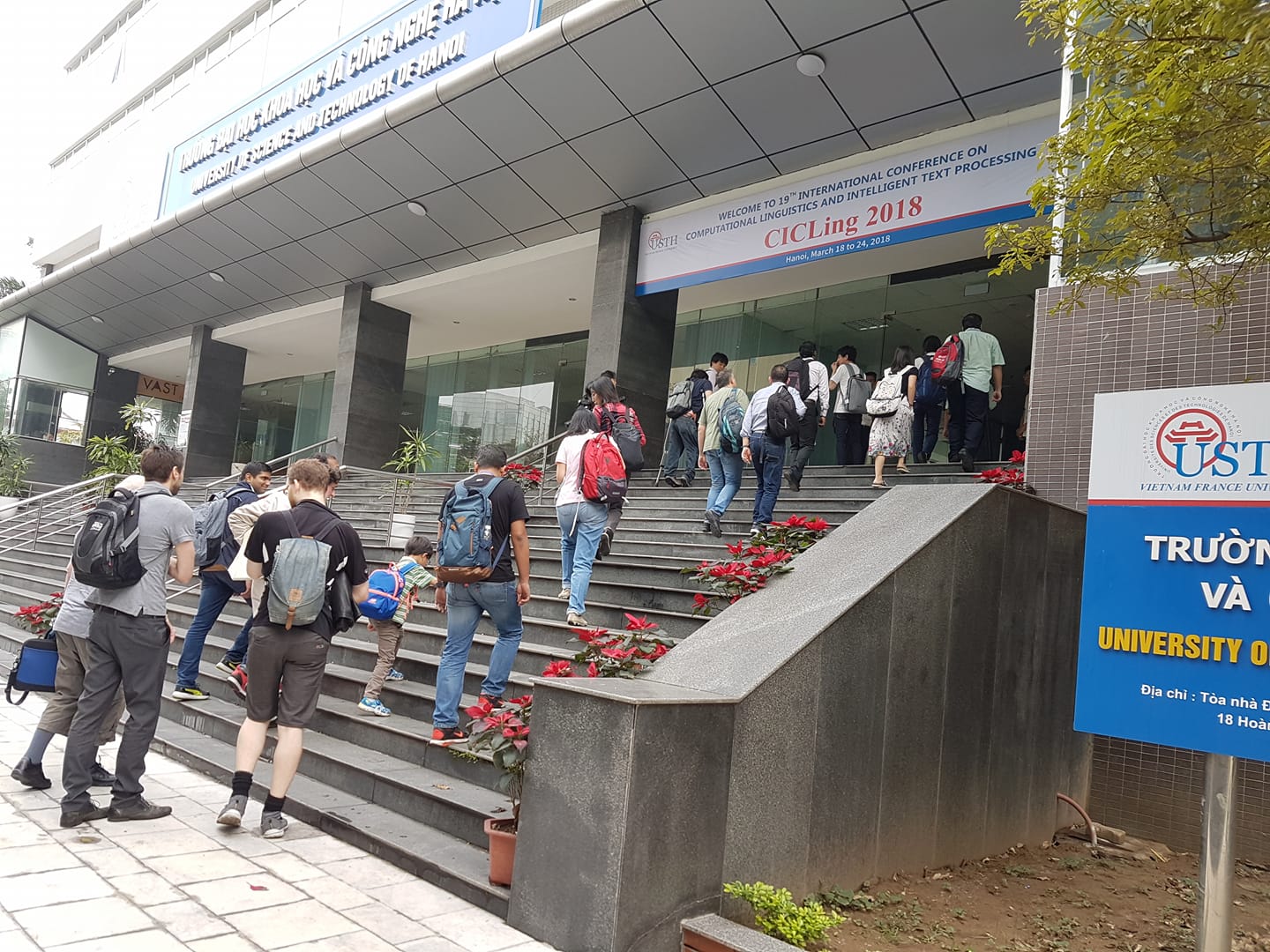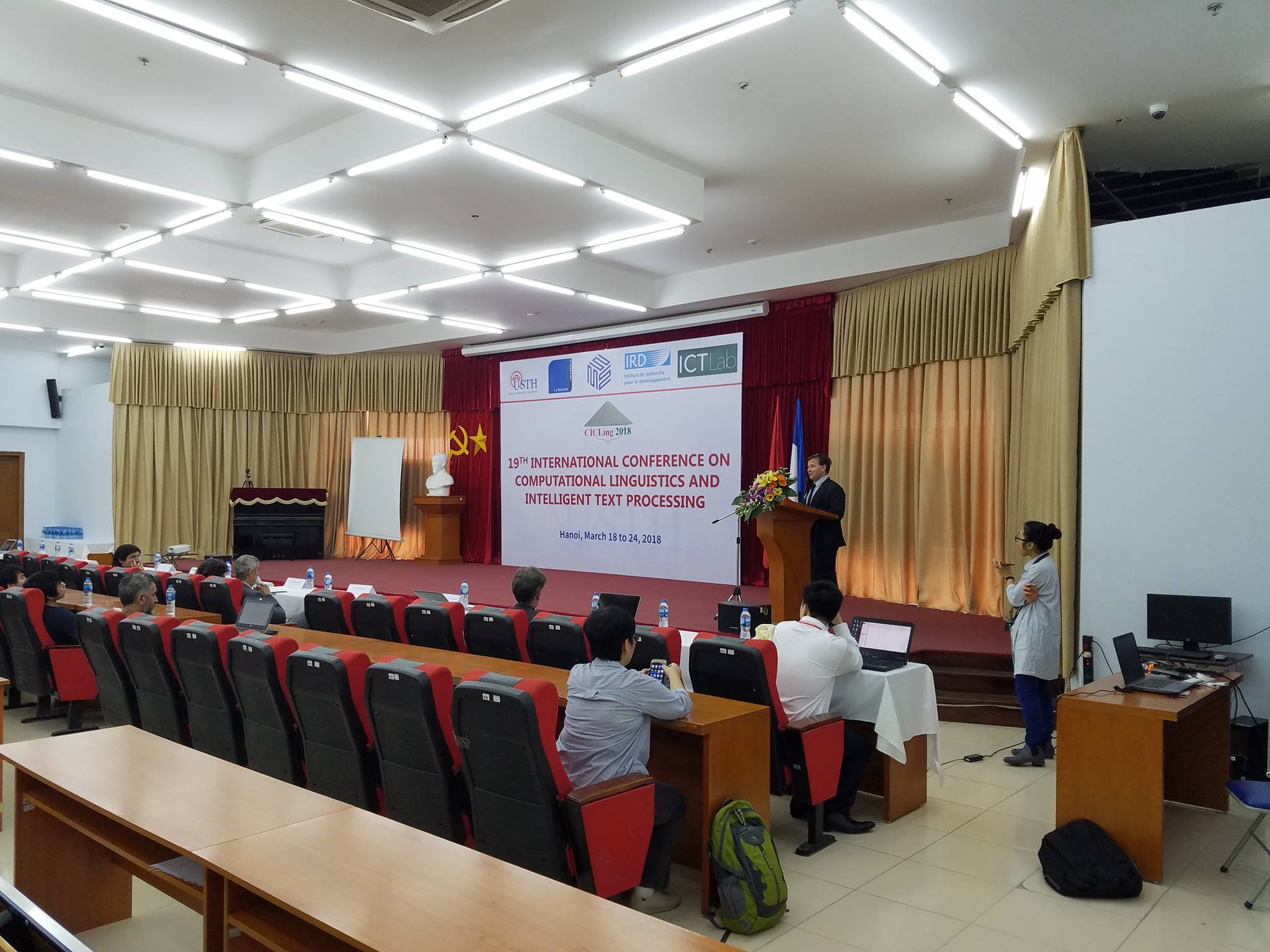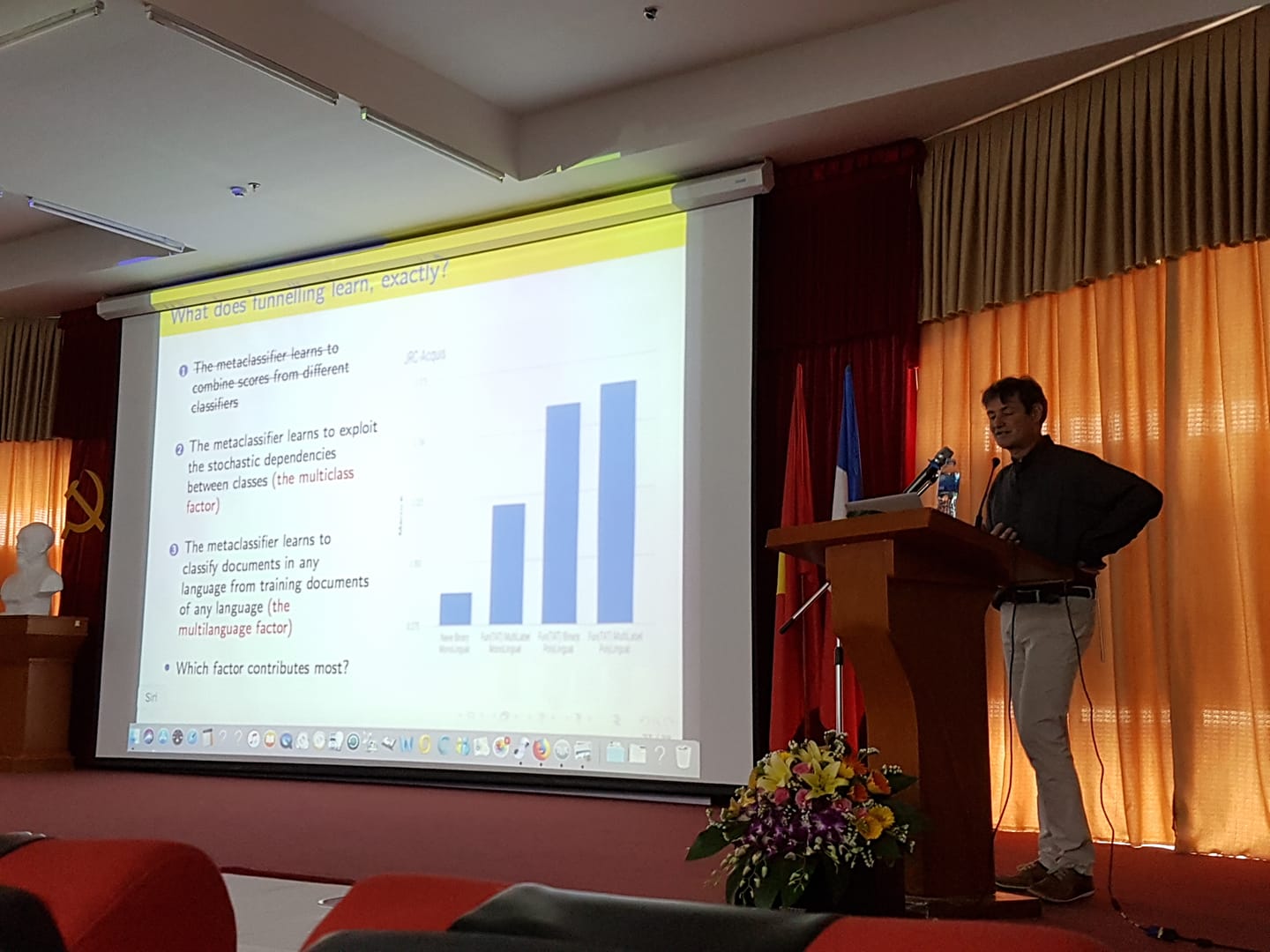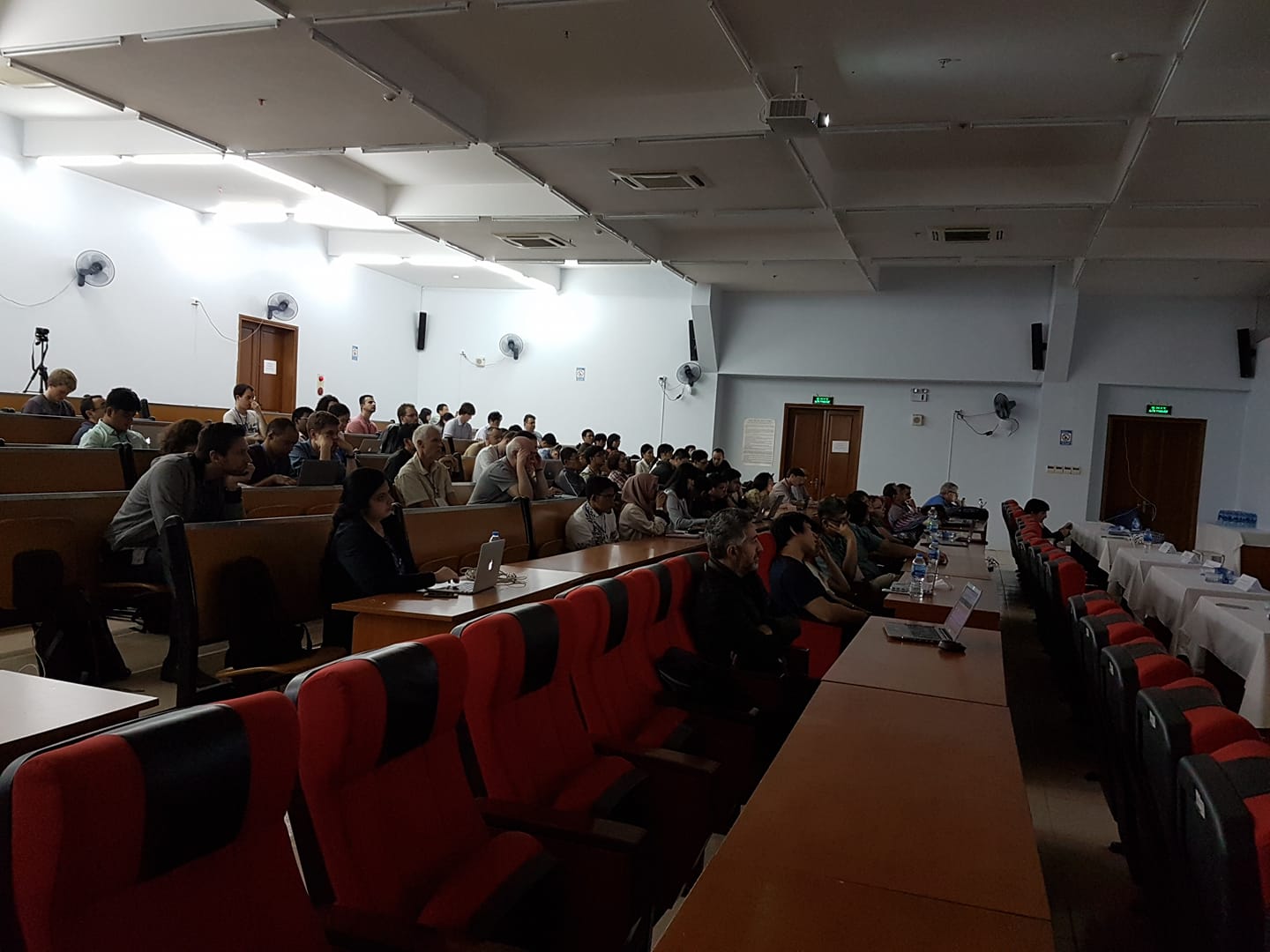ICT Seminar March 07, 2019 – THAN Quang Khoat from HUST
Speaker: THAN Quang Khoat, Head of Data Science Lab, HUST
Time & place: Thursday (07/3) afternoon, 2:00 PM in ICTLab meeting room
Title: How to make a machine learn continuously? A tutorial of the Bayesian approach
ICTLab Seminar Oct 18th, 2018 – Nguyen The Loc from HUMG @ USTH
Speaker: Dr. Nguyen The Loc, HUMG
Topic: Non-Pharmacological Interventions (NPIs)
Date: 2:00pm – 3:00pm, October 18th 2018
Location: ICTLab, USTH building, 18 Hoang Quoc Viet, Cau Giay, Hanoi.
ICTLab Seminar Oct 11, 2018 – Benoit Gaudou from IRD @USTH
Speaker: Assoc. Prof. Benoit Gaudou, IRD
Topic: Toward complex models of complex systems – One step further in the art of Agent-Based Modelling
Date: 2:00pm – 3:00pm, October 11th 2018
Location: ICTLab, USTH building, 18 Hoang Quoc Viet, Cau Giay, Hanoi.
The first day of CICLing 2018 on 19/3/2018 at USTH
The first sight in the morning where the conference starts:
Then participants went happily into the conference:
Opening speech from Prof. Jean-Marc Ogier, President of University of La Rochelle, France:
Presentation from the first keynote speaker:
Participants in the conference hall:
Seminar January 18, 2018 @ ICTLab of USTH
Topic 1:Structural and algorithmic aspects of lattices in Formal Concept Analysis (FCA)
Speaker: Karell Bertet, Laboratory L3i, La Rochelle University, France
Time: 2:00pm – 3:00pm
Abstract: Since the 2000s, the emergence of formal concept analysis (FCA) in various areas of computing, as in data mining and knowledge representation for databases and ontologies, has highlighted the structures of concept lattice and closed set lattice. The emergence of the lattice structure can be explained both by the growing share of computer science in most disciplines, leading to increasing production data, but also by the increasing power of computers. This seminar aims to present the basic concepts of lattice theory and FCA, and key generation algorithms. Some examples of applications in classification and knowledge representation will also be presented.


